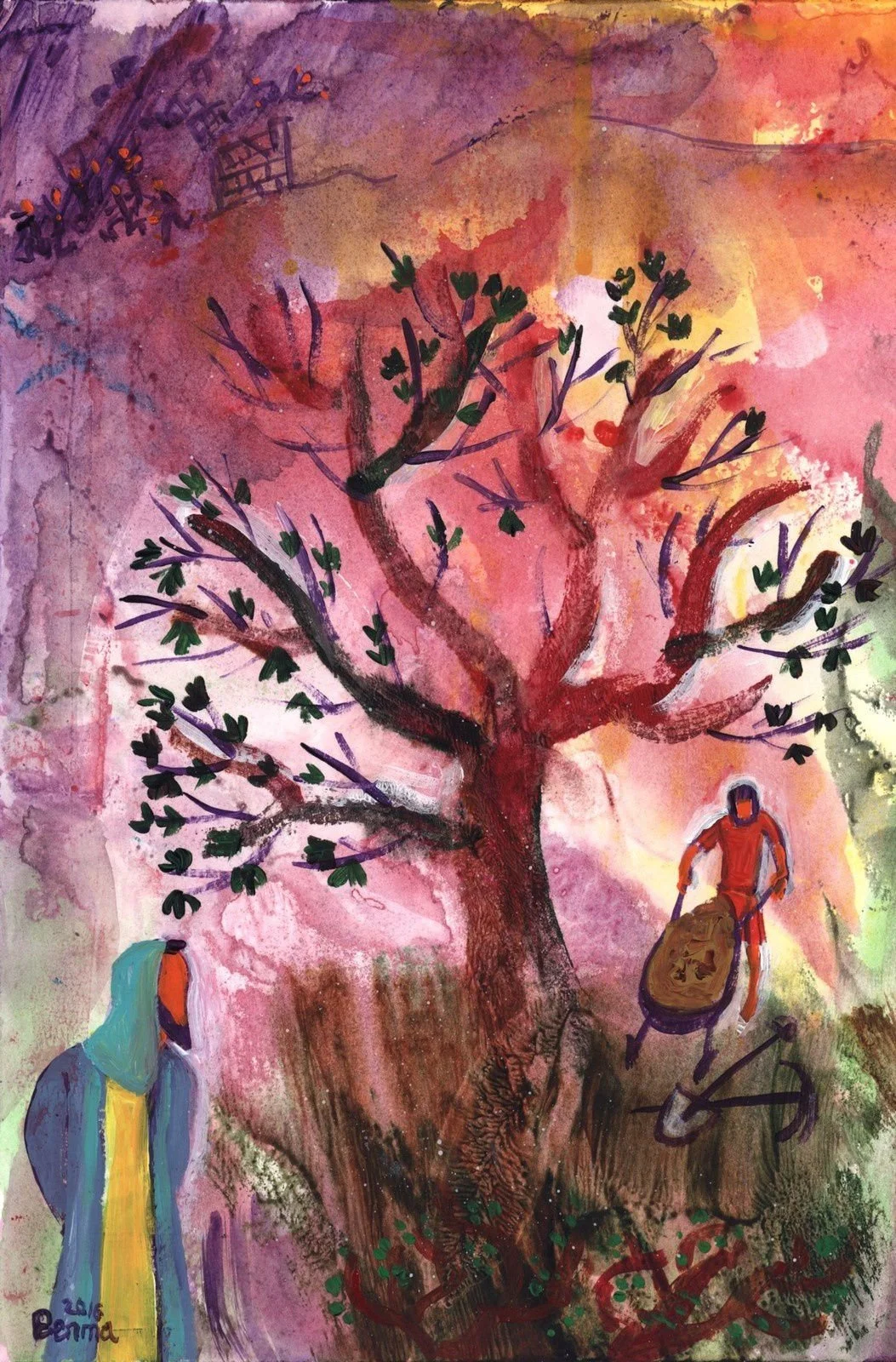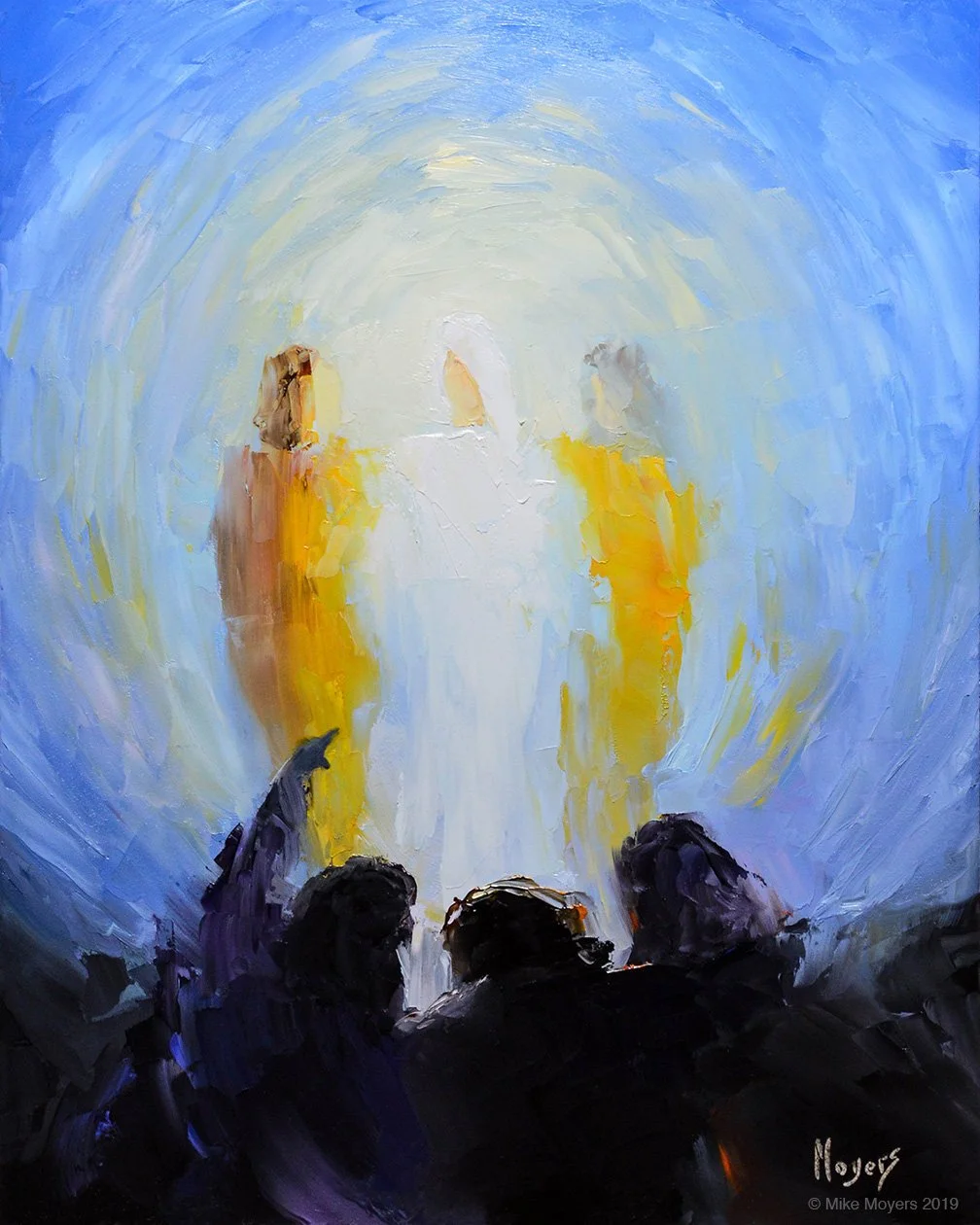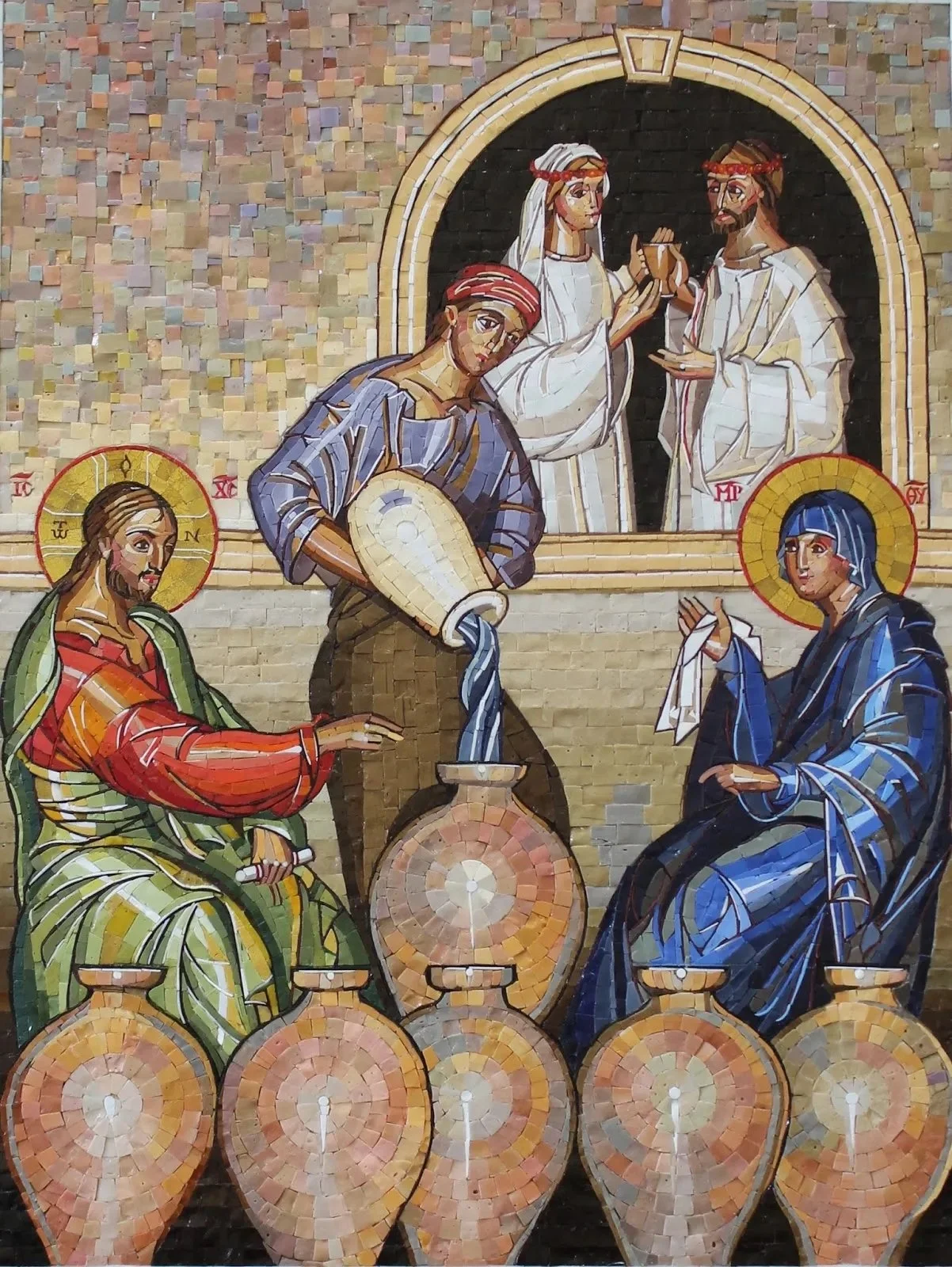Palm Sunday: April 13, 2025 | The Rev. Nat Johnson
I have vivid childhood memories of sitting in Sunday School, watching the teacher use a felt board to tell the story of Jesus’ Triumphant Entry into Jerusalem. She built the scene, first by constructing a road – a tan-colored piece of felt that ran the length of the board; then grey pieces shaped like rocks placed along path. Next came palm trees clustered together at various points along the road, and then a piece of felt, shaped like a donkey and covered in cloaks. A group of disciples next to the donkey, and then Jesus placed atop the donkey. As the teacher told the story and moved the pieces along the road, she added the crowds of people – some waiving palm branches and others spreading their cloaks along the ground in front of Jesus. The story we were told every year was a story of celebration. Jesus was on his way to Jerusalem and the people were greeting him as their king.
Fifth Sunday of Lent: April 6, 2025 | The Rev. Nat Johnson
We meet Mary, Martha, and Lazarus in the chapter before our gospel reading from John picks up today. They were beloved friends of Jesus. John tells us that Lazarus became severely ill and that his sisters had sent word to Jesus, telling him of Lazarus’ condition. Instead of rushing to Lazarus’ sickbed, we’re told that Jesus sees in these circumstances an opportunity to reveal the glory and power of God. He told his disciples they would wait. By the time Jesus responded, he reached Bethany a whole four days after Lazarus had died and been buried.
Fourth Sunday in Lent: March 30, 2025 | Jessica Thompson
The Prodigal Father
Families. We all have them. We were born or otherwise placed in a unit of people meant to care and nurture us as we grow. Yet we know families are messy and complex, each in their own way.
Today our gospel takes us into the iconic story of the prodigal son. The word prodigal meaning extravagant or lavish spending—abundance, not repentance and return, which was the definition I grew up assuming. This is the story of two sons and a father.
Third Sunday of Lent: March 23, 2025 | The Rev. Nat Johnson
This week’s gospel reading comes from a section of Luke that contains Jesus’ teaching on the topic of repentance. In the interaction between Jesus and those who bring him the report of the slaughtered Galileans and the Jews crushed by the tower, we are given a sense of urgency regarding the need for repentance. Jesus insists that the time is short, that now is the time to repent, now is the time to change our ways, to turn back, to turn around. In the course of his teaching, Jesus debunks the notion that suffering is a sign of divine wrath, applying the urgent need to repent even to those who seem blessed in this life. All have sinned, Jesus insists. All have a need to resist evil.
Second Sunday in Lent: March 16, 2025 | Laura Meyers
Jesus, the Mother Hen
In our scriptures this morning, we hear many echoes of “home.” When you hear the word home, what are the first things you think about? Is it the physical place where you live…with maybe your favorite chair where you read, or the table where you gather to share meals…or even the garden outside you’ve tended-with food to nourish you or flowers from the seeds of a loved one?
First Sunday in Lent: March 9, 2025 | The Rev. Nat Johnson
Every year, on this first Sunday of Lent, we hear that Jesus was led into the wilderness where he stayed for 40 days. The scene is meant to recall other stories, to conjure within our memories the 40 days that Moses fasted before being given the Law on Mount Sinai and the 40 years the Israelites wondered in the wilderness before entering the Promised Land. In each of these recollections, we discover that the wilderness is a place of both divine presence and testing. It is a place in which we are stripped of convenience and pretense, a place of utter dependence upon the provision of God alone, a place of discovery and formation.
Ash Wednesday: March 5, 2025 | The Rev. Nat Johnson
Ash Wednesday. It’s a day on which we are reminded of our mortality: Remember that you are dust, and to dust you shall return. It is also the day that begins our journey through Lent, a penitential season meant to remind us of our creatureliness, of our complicity in systemic sin larger than individual transgressions, of our human tendency to distort relationship and of our habitual self-seeking. Today, we turn our faces toward Jerusalem and, over the next six weeks, follow Jesus as he makes the final trek to be handed over to death. Today, we are bid to enter this holy season in a posture of prayerful self-examination with a commitment to engage in communal practices of lament, repentance and confession, and renewal of faith.
Last Sunday after the Epiphany: March 2, 2025 | Jessica Thompson
Transforming Moments
“From this moment on, my life will never be the same again.”
Those moments. Those mountaintop moments where the world pauses—all the ordinary things drift away and no longer matter. We find ourselves knowing, deep within our soul that things have changed and we will never be the same again.
Seventh Sunday after the Epiphany: February 23, 2025 | The Rev. Nat Johnson
Love your enemies: do good to those who hate you, bless those who curse you, pray for those who abuse you, don’t retaliate, and give generously when people beg from you, don’t seek restitution when someone steals from you.
These are hard words to swallow, particularly in our present moment.
Sixth Sunday after the Epiphany: February 16, 2025 | Laura Meyers
Standing on the Level Place: A Call to Solidarity and Justice
The Rev. Dr. Pauli Murray said, “When my brothers try to draw a circle to exclude me, I shall draw a larger circle to include them.”
The Presentation of our Lord: February 2, 2025 | The Rev. Nat Johnson
God is the God of time. The readings appointed for this week in the lectionary each give a powerful reminder that God is not an aloof entity who stands above and outside of our world. We worship a God who has actually entered into human history. Even more perplexing and mysterious is the claim these readings make that God continues to enter our story. The season of Epiphany offers an extended meditation upon this remarkable theological claim.














